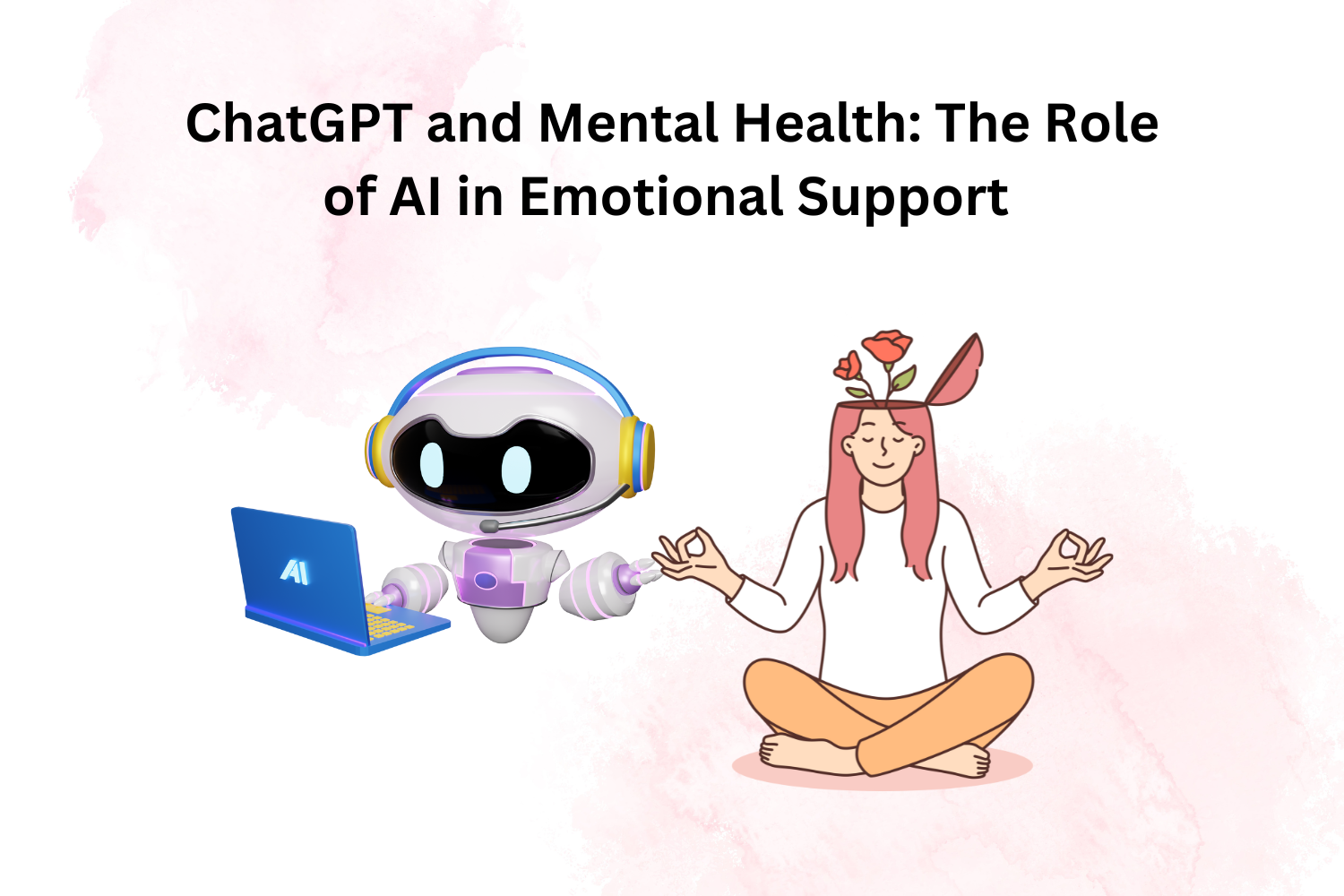
In an era where mental health awareness is on the rise, technology plays an increasingly significant role in providing support and resources to those in need. ChatGPT, a powerful AI model developed by OpenAI, is one such technology making waves in this space. While traditionally seen as a language model for generating human-like text, ChatGPT is also being explored for its potential to offer emotional support and assistance to individuals struggling with mental health issues. In this blog post, we'll examine the intersection of ChatGPT and mental health, discussing the role of AI in emotional support and How to Use ChatGPT for their well-being.
Table Of Contents
- How to Use ChatGPT for Mental Health Support
- Benefits of Using ChatGPT for Mental Health Support
- Limitations and Considerations
- Conclusion
How to Use ChatGPT for Mental Health Support
ChatGPT is a versatile tool that can be used in various ways to provide emotional support and assistance to individuals facing mental health challenges. Here are some ways in which ChatGPT can be utilized for mental health support:
Anonymous Venting
Individuals can use ChatGPT as a platform for anonymous venting and expressing their thoughts and feelings without fear of judgment or stigma. ChatGPT provides a non-judgmental space where individuals can freely express themselves and receive validation and support.
Conversation Partners
ChatGPT can serve as a conversation partner for individuals who may feel isolated or lonely. By engaging in conversational interactions with ChatGPT, individuals can alleviate loneliness and experience a sense of connection and companionship.
Coping Strategies
ChatGPT can provide individuals with coping strategies and techniques for managing stress, anxiety, and other mental health issues. ChatGPT can offer suggestions for relaxation techniques, mindfulness exercises, and different coping mechanisms through interactive conversations.
Emotional Validation
ChatGPT can offer emotional validation and empathy to individuals struggling with difficult emotions. ChatGPT can help them feel understood and supported by acknowledging and validating individuals' feelings.
Resource Referrals
ChatGPT can provide individuals with information and referrals to mental health resources, such as hotlines, support groups, and therapy services. By connecting individuals with relevant resources, ChatGPT can help them access the support they need to improve their mental health.
Benefits of Using ChatGPT for Mental Health Support
Using ChatGPT for mental health support offers several benefits for individuals facing mental health challenges:
Accessibility
ChatGPT is accessible to anyone with an internet connection, making it a convenient and readily available resource for individuals needing emotional support.
Anonymity
ChatGPT allows individuals to remain anonymous while seeking support, which can help reduce barriers to seeking help and increase feelings of safety and confidentiality.
24/7 Availability
ChatGPT is available 24/7, allowing individuals to access support whenever needed, regardless of time or location.
Non-Judgmental Support
ChatGPT provides non-judgmental support and empathy, creating a safe space for individuals to express themselves openly and honestly.
Customized Assistance
ChatGPT can tailor its responses based on individual needs and preferences, providing personalized support and guidance.
Limitations and Considerations
While ChatGPT can be a valuable tool for mental health support, it's essential to recognize its limitations and considerations:
Lack of Human Interaction
ChatGPT is an AI model that needs the human touch and intuition of interpersonal interactions. While it can provide empathy and support, it may not fully replicate the depth of human connection.
Accuracy and Reliability
ChatGPT's responses are generated based on patterns in the data it has been trained on and may not always be accurate or reliable. It's essential to critically evaluate the information provided by ChatGPT and seek professional help if needed.
Ethical Considerations
There are ethical considerations surrounding using AI for mental health support, including privacy, data security, and potential biases in the AI model. It's crucial to use ChatGPT responsibly and ethically, taking steps to protect individuals' privacy and confidentiality.
Supplemental Support
ChatGPT should be viewed as a supplementary support tool, not a replacement for professional mental health care. Individuals experiencing severe or persistent mental health issues should seek help from qualified mental health professionals.
Conclusion
In conclusion, ChatGPT can play a valuable role in providing emotional support and assistance to individuals facing mental health challenges. By offering anonymous venting, conversation partners, coping strategies, emotional validation, and resource referrals, ChatGPT can help individuals improve their mental well-being and access the support they need. While ChatGPT has limitations and considerations, it can be a convenient, accessible, and non-judgmental resource for those seeking emotional support. As technology evolves, ChatGPT and other AI models can complement traditional mental health services and expand access to support for individuals around the world.

No comments yet